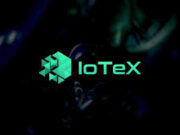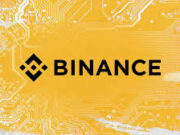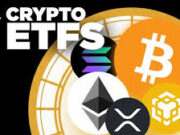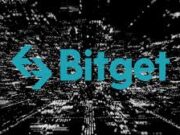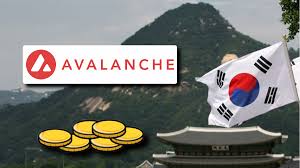In an era where digital innovation and financial services continue to merge, the recent proof-of-concept (PoC) led by NH NongHyup Bank in South Korea offers a vivid example of how legacy banking systems can embrace blockchain. The bank has teamed up with Avalanche, Fireblocks, Mastercard and Worldpay to pilot a stablecoin-based value-added tax (VAT) refund system for tourists. (MEXC)
In plain terms: instead of the traditional paper-heavy refund process at airports or retail counters, this initiative envisions a scenario where tourists purchase goods, leave the country, and claim their tax refund via a blockchain-settled stablecoin payment—automated by smart contracts. That might sound futuristic, yet it’s right here. In this blog post, we’ll walk through how this pilot works, what it signals for financial innovation in Korea, the ripple effects for tourism and cross-border payments, and what to keep an eye on in the months ahead.
Background: The Current Tax Refund Process for Tourists
For many international visitors to South Korea, claiming a VAT refund can feel like a hassle. When eligible goods are purchased, tourists must navigate paperwork, provide receipts, wait in queues at major airports and often endure delays or currency conversion overheads. The costs of manual processing, intermediary fees and time wasted are non-trivial.
Now, NH NongHyup’s pilot seeks to simplify that process by replacing manual paperwork and intermediary settlement with a digital system built on blockchain infrastructure.
The Pilot: What’s Being Tested and How
Key Partners and Technology
The pilot is orchestrated by NH NongHyup Bank and major fintech/blockchain partners. According to press reports, the bank is collaborating with Avalanche, Fireblocks, Mastercard and Worldpay. (MEXC)
Here’s how they break down:
- Avalanche: Provides the blockchain infrastructure—chosen for its speed, scalability and ability to support smart contracts. (BSC News)
- Fireblocks: Specialist in digital asset custody and secure transfers—critical when dealing even with simulated stablecoins. (MEXC)
- Mastercard & Worldpay: Offer the payment rails, merchant integrations and cross-border settlement experience. Their involvement signals this is not purely “crypto for crypto” but a hybrid model aligned with regulated payment systems. (BSC News)
The Design of the Proof-of-Concept
- The system will test stablecoin-based settlements: Instead of waiting for traditional bank wire or refund agents to process the tax refund, the idea is that a stablecoin can be issued (or simulated) and moved almost instantaneously across parties once certain conditions are met. (MEXC)
- Smart contracts will automate refund triggers: For example, once the purchase is verified and departure data is confirmed (tourist leaves country with goods), then the refund settlement logic kicks in. (Maeil Business Newspaper)
- Importantly, no real customer funds or personal data are being used yet in this PoC. It is restricted to technical and operational feasibility. (TradingView)
What the Pilot Aims to Validate
- Can such a system process refunds more quickly and transparently than existing methods?
- Will the stablecoin-based settlement reduce friction (currency exchange, delays, intermediary fees)?
- Can the blockchain infrastructure integrate with existing bank/merchant/regulatory systems in a compliant way?
- Is this model scalable and secure enough for future adoption?
Significance for South Korea’s Financial & Tourism Ecosystem
Streamlining The Tourist Experience
In 2024, South Korea welcomed some 16.37 million inbound tourists—a 48.4 % increase from the previous year. (TradingView) That growth places pressure on tourism-related infrastructures, including tax-refund services. A digitalised and faster refund process improves the experience for visitors, potentially encouraging more spending and positive word-of-mouth.
A Move Toward Digital Finance and National Competitiveness
NH NongHyup’s Executive Vice President, Choi Woon‑jae, stated that the pilot “demonstrates how blockchain can enhance customer experience and strengthen national competitiveness.” (TradingView) In a broader sense, this signals that South Korea is positioning itself at the forefront of financial innovation, not just in fintech but in integrating blockchain and digital assets within regulated financial services.
A Framework for Won-Pegged Stablecoins
This pilot aligns neatly with regulatory developments in South Korea. The Financial Services Commission (FSC) is working on a legal framework for Korean-won pegged stablecoins—a move viewed as critical in reducing reliance on U.S.-dollar-backed stablecoins and strengthening monetary sovereignty. (AInvest)
NH NongHyup’s pilot offers a real-world testbed of stablecoin usage tied to cross-border flows—a useful precursor to broader won-stablecoin deployment.
Potential Cost-Savings and Operational Efficiency
Paper-based systems and manual processes incur higher costs and are prone to errors or delays. By automating logic via smart contracts and using blockchain settlement, banks and merchants could cut processing overheads and improve transparency. Over time, that could translate into cost savings for businesses and smoother operations at the tourism interface.
Considerations & Challenges
Regulatory and Compliance Hurdles
While the pilot is relatively contained, scaling to full deployment will confront regulatory compliance challenges:
- Which entity will issue the stablecoin? The Bank of Korea suggests that only banks should handle issuance, but fintech firms urge for broader access. (AInvest)
- Anti-money-laundering (AML) and know-your-customer (KYC) requirements remain critical when dealing with cross-border flows.
- Ensuring consumer protection, data privacy, and integrating with traditional refund/retail systems may take time.
Technical and Operational Risks
Smart contracts must be robust, audited, and free of vulnerabilities. Any failure in the chain (e.g., merchant → merchant system → blockchain) could undermine trust. Also, handling large volumes of transactions in real time remains a challenge.
Tourist Adoption and Behaviour
Even if the system works technically, tourists and merchants must buy in. Retailers might resist changing established refund workflows. Visitors might prefer cash/credit refunds due to familiarity. Education and incentives may be required to drive adoption.
Currency Conversion & Stablecoin Choice
If a stablecoin is pegged to KRW (as envisaged), the implications for currency conversion, settlement with the tourist’s home currency, and volatility must be managed. Even with pegging, exchange rate risk remains for the tourist.
Broader Implications: What This Suggests for Cross-Border Payments
Though the pilot focuses on tourist VAT refunds, the implications extend far beyond. We can see three potential areas of extension:
- Cross-Border Remittances & Payments
The same blockchain + stablecoin model could support remittances from one country to another—faster, lower cost, more transparent than legacy remittance rails. - Merchant Payments & Refunds
Domestic merchants could begin to accept stablecoin-based payments from international customers, especially tourists. Refunds and returns might also be automated. - Banking and Settlement Infrastructure
Banks could leverage blockchain for back-office clearing and settlement, not just for tourists but for corporate flows and intra-bank settlements.
As regulators formalise rules for stablecoins and financial infrastructure evolves, pilots such as this one serve as foundational building blocks.
A Closer Look at the Pilot’s Mechanics
Let’s walk through a hypothesised process flow based on available information:
- A tourist purchases goods at an eligible store in South Korea.
- The merchant records the purchase details (receipt, amount, customer eligible status).
- The tourist checks out, departs the country with the goods.
- Departure data is captured (airport exit, customs verification).
- A smart contract on Avalanche recognizes that conditions are met (purchase + departure) and triggers refund settlement.
- The refund value is moved via a stablecoin that is pegged (or simulated) to a value equivalent to the local currency (KRW) and converted to the tourist’s home currency or wallet.
- Tourist receives the refund nearly instantly, possibly via mobile wallet or bank transfer, with minimal paperwork.
- All streams (merchant, bank, tax authority) are recorded on-chain for auditability and transparency.
The key gains: less time in queues, less manual paperwork, less reconciliation between merchant, bank and tax agency, and near-instant settlement.
What to Watch Next
While this pilot is still early, several things will be worth monitoring:
- The results of the pilot: processing times, cost savings, user satisfaction.
- Whether real customer funds and data are involved in subsequent phases (the current PoC uses simulated tokens).
- How regulators respond: the MSC, Bank of Korea and others will issue guidance or laws around stablecoin issuance—this framework will heavily influence adoption.
- Retail merchant adoption: how many stores participate, how many tourists opt-in.
- Extension beyond tourism: will this model be used for other refund types, domestic payments, or remittance corridors?
Summary
The NH NongHyup Bank pilot represents a significant step in the convergence of traditional banking, tourism payments and blockchain innovation. By migrating tourist VAT refunds to a smart-contract-enabled, stablecoin-based system on Avalanche, South Korea is signalling its intent to embrace digital finance beyond mere rhetoric.
If the pilot succeeds, the benefits could range from faster refund experiences for tourists, lower costs for merchants and banks, and a more globally competitive tourism finance infrastructure for South Korea. At the same time, the initiative sits within the larger global debate over stablecoins, monetary sovereignty, and the future of cross-border payments.
In short: this isn’t simply about tourist refunds—it’s emblematic of how financial services may evolve in the next few years. The technical demonstration is underway; the real challenge lies in scaling, regulation and adoption.
External Sources
- “South Korea’s NH NongHyup Bank Pilots Stablecoin-Based VAT Refunds for Tourists” – Coinpedia / TradingView. (TradingView)
- “NH Nonghyup Bank Launches Stablecoin VAT Refund Pilot” – Business Korea. (Businesskorea)
- “Stablecoin Tax Refunds Tested by NH Nonghyup Bank on Avalanche Blockchain” – MEXC News. (MEXC)
- “South Korea Aims to Challenge USD Stablecoins with Blockchain-Driven VAT Refunds” – AInvest / Coin World. (AInvest)
- “Avalanche Backs South Korea’s NH Nonghyup Bank in Blockchain-driven VAT Refund Trials” – BSCN. (BSC News)
- “South Korea’s NH NongHyup Bank pilots stablecoin-led tax refunds on Avalanche” – TodayOnChain. (todayonchain.com)



